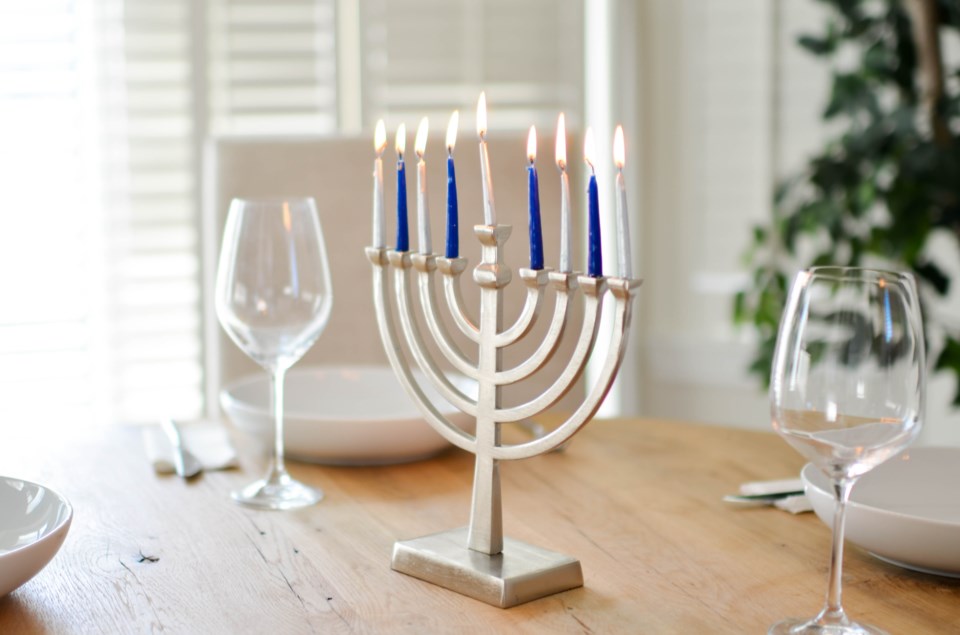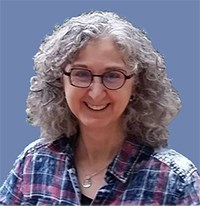 Chanukah is over, the menorah and dreidels put away until December 22, 2019. That’s right, next year Chanukah overlaps Christmas again and those of us with multifaith households may set up our menorahs next to Christmas trees or other holidays season decorations and ornaments. The pubic expression of holidays at this time of year can often look like a money grab by the retail industry or an insensitivity to people who do not celebrate or believe in the Western world’s major holidays, but things are not always as they seem. Remember that when you purchase or receive a gift, the thing itself is only an outward, physical expression of the desire for connection.
Chanukah is over, the menorah and dreidels put away until December 22, 2019. That’s right, next year Chanukah overlaps Christmas again and those of us with multifaith households may set up our menorahs next to Christmas trees or other holidays season decorations and ornaments. The pubic expression of holidays at this time of year can often look like a money grab by the retail industry or an insensitivity to people who do not celebrate or believe in the Western world’s major holidays, but things are not always as they seem. Remember that when you purchase or receive a gift, the thing itself is only an outward, physical expression of the desire for connection.
Over the last few years, I have written a number of articles about the importance of sharing our faith while respecting and honouring others. When I was growing up in Regina, Saskatchewan, the partners in my father’s medical practice were from a variety of cultures and faiths. At a time when the local country club membership was still closed to Jews, people of colour, and First Nations, my father and his partners treated every patient regardless of race or religion with the same care and attention. My mother was active in both Jewish and secular organizations from Hadassah Wizoand ORT to municipal politics and the National Council for the Status of Women.
I remember going to a women’s conference with my mother when I was in my early twenties. I don’t remember any of the talks or any of the women my mother introduced me to. What I do remember was that the women were all different shapes and sizes and their fashions ranged from mini-skirts to burkahs. My mother made a point of telling me each woman’s level of education and accomplishments. By learning a little bit about their history and contributions, I saw each woman in a completely different light.
Through my parents, I learned that what people looked like had little bearing on who they were. Which leads me to the rest of my article which as been sitting, half-written, in my computer for over two years.
In April 2016, I wrote an article called Kosher for My Soul. In that article, I explained one reason why many Jewish people will eat a variety of non-kosher foods, but they won’t eat pork. The pig is the only animal in the world that has split hooves and does not chew its cud. It appears to be kosher on the outside when in fact it is non-kosher or unclean on the inside.
I have had some good feedback on that article, but I have started to feel a little bit sorry for the much-maligned pig. After all, it has no choice. G-d made it that way. So, here I offer another possible reason why G-d prohibited us from eating pork– the pig is a lifesaver!
That’s right. Not only did G-d make the pig to appear kosher on the outside, but he made its insides so like humans that its use in medicine is quite remarkable.
A quick Google search for any variation of “pigs in medicine” will return millions of results. At Sustainable Swine Resources(http://www.sustainableswineresources.com/medical-groups.php) you can learn about the incredible contribution the pig makes to medical research and all the products that we already use to heal our bodies. It’s possible that pig to human heart-transplants and lung-transplants may be possible in the future.
When I was doing some research for this follow-up article, I wondered if the prohibition against eating pork also meant that Jews couldn’t use or benefit from any part of the pig. On Chabad.org (my go-to source for Jewish studies I was surprised to learn that although we are forbidden to orally ingest pork, we may benefit from the by-products in other ways. Medicine is only one area that is permitted. We may also play football with a pigskin ball, or wear clothing made of leather which comes from a non-kosher animal. It’s good to know that if we receive such a gift this season, we may accept it as an opportunity for connection with the person who gave it to us…and, maybe use it as a good conversation starter for learning more about our own faith and others.
For other Chanukah inspiring articles from Fiona Prince, read:
- Chanukah Memories and a Childhood Filled with Light
- Details matter: Lighting Hanukkah candles — right to left or left to right?
- Light up the Darkness!
Holiday Mash-ups, Chrismukkah, Hannukmas and Festivus for the Rest of Us!
 Fiona Prince, MA is a coach, facilitator and teacher who provides fundamental communication and writing skills to help people succeed in their professional and academic lives. She worships at the Chabad Family Shul where she volunteers teaching children and adults how to read Hebrew. Sign-up for weekly communication tips at www.princeheron.com. To learn to read Hebrew, contact her at morahfaiga@gmail.com. (Morah means teacher and Faiga is her Hebrew name).
Fiona Prince, MA is a coach, facilitator and teacher who provides fundamental communication and writing skills to help people succeed in their professional and academic lives. She worships at the Chabad Family Shul where she volunteers teaching children and adults how to read Hebrew. Sign-up for weekly communication tips at www.princeheron.com. To learn to read Hebrew, contact her at morahfaiga@gmail.com. (Morah means teacher and Faiga is her Hebrew name).
You can read more articles on our interfaith blog, Spiritually Speaking, HERE
- Photo of menorah by Element5 Digital on Unsplash


